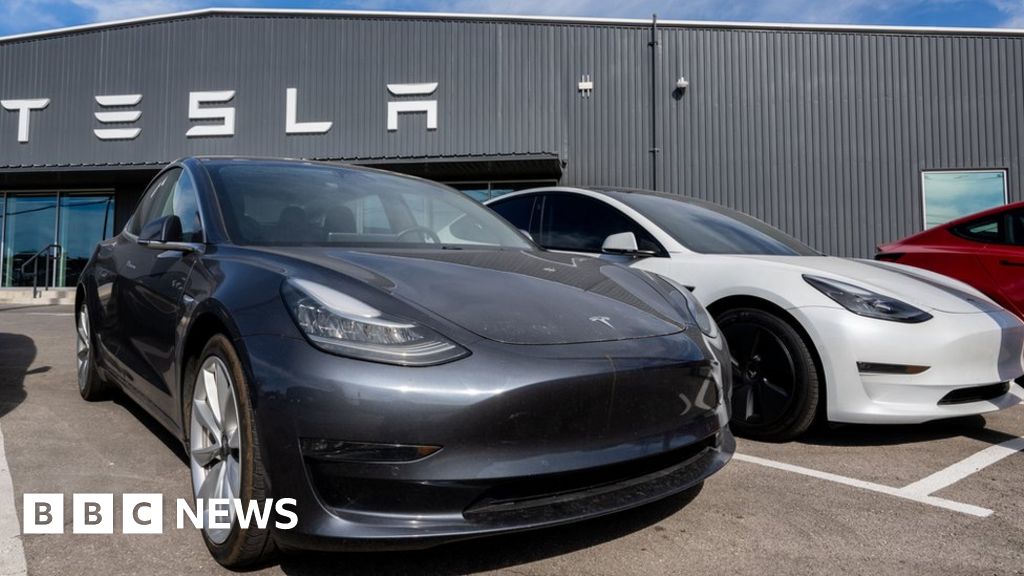Used Teslas are now more expensive than new Teslas.
Good for first time buyers that want a Tesla. Bad for resellers and current customers that saw their value drop by 20% over night.
Having paid for a fully equipped Tesla Model Y in November, I can't say that it really matters to me. If I couldn't afford it, then I wouldn't have bought it. I'm always confused about how people think they're "owed" changes in price after they've bought a thing. If you buy a TV today and in three months that TV reduces in cost by 20%, are you owed the updated price? If you buy a car today and in three months the cost comes down, why are you owed the difference?
And for all the complaining about Tesla dropping price, we seem to have forgotten the stupid markups (oh I'm sorry, regional price adjustments) the dealerships sneak into basically every other EV model available. When you get on the Tesla ordering page and see a $48,107 price tag for your car, that is literally the price you will pay for the car. There isn't the mysterious hand of your Ford dealership grabbing your Mach E order you've been waiting on for months to then insiert another $20k in the name of "well, supply chain and stuff, dawg...." So you gonna recoup that $20k dealer markup when they're finally able to start selling them at MSRP again? Haven't seen anyone bitching about this happening for the last, oh I dunno, four decades?
I'm sure it "matters" more to those folks who are continually buying new cars every few years. Maybe they should cut it out and stop being being wasteful, consumerist turds? We plan on driving our Y until our youngest kid (7yo son) is off to college, and there's zero reason to believe it cannot live at least that long if not more with minimal to zero maintenance -- outside of tires and a few cabin air filters.
They say charging infrastructure needs to be better. The US trails Europe and China in charging infrastructure as well as having fewer EV models available in the market. Supposedly under either the BIF or the IRA, Biden administration can set a charging standard, so that Tesla's proprietary network wouldn't be copied by other EV makers. They conclude, based on a bad experience with charging, that EVs are great every day cars but they're not for road trips.
Charging network is the sole reason for buying a Tesla at this point, and honestly was the primary driver for us as well. We just finished an 800 mile road trip (396 miles door to door from Memphis to Louisville and back) in the Model Y. Leaving Friday night started us at 36*F and driving east alongside an 8mph wind out of the north, ending in Louisville six and a half hours later at 24*F in the dark driving straight north into a 22mph headwind. It took a single charge in Nashville to break up the trip, and we used the 30 minutes for our two kids to use the bathroom and all of us to eat dinner. There are five charging stops available to us along the route not including the origin and destination cities -- Jackson, Charlotte Pike, Dickerson, Bowling Green and Elizabethtown. Even if our range was only 100 miles (our first stop was 197 miles) we could charger-hop the entire way there and still not have any problems. Even more to the point of charging access, a year ago we Turo'd (rented) a Model Y as a pre-test-drive for whether we wanted to buy one or not), and we drove it from Memphis, Tennessee to Benton Harbor, Michigan through the flyover wasteland of I55 North to I57 North. We had literally zero problems finding charging options, well inside of any range anxiety-inducing battery percentage remaining.
The native integration of Tesla supercharging stations directly into the trip planner software in the Tesla navigation system also includes charge rate (KW), charging cost, number of stalls in a functioining state, number of those functioning stalls which are currently in use, historical averages of utilization at this charge location, and a list of amenities nearby. And as of around six months ago, the trip planning system now integrates not only GPS data (street type, speed limits, distances and elevation changes) but also weather predictions (current temperature and wind speed and direction where you are now, predicted temperature and wind direction and speed along your route) to estimate charge remaining at your next stop, along with the historical averages of your own driving style across different road types (city vs highway) and your car's own battery and general efficiency performance (trending over the past 31 days of your car's consumption.) It's
really good at helping you estimate and plan on how to use the available charging stops.
A shitty charging network in the US is a problem for EVs that aren't Tesla.
And yeah, let's be sure to leave space for talking shit on that dumass Musk. I don't necessarily want to fund his ass-hattery and douche-baggery either, but Tesla isn't Elon Musk and a million robots -- it's tens of thousands of US employees earning a living wage. I don't want to support Elon, but I'm also not against supporting US jobs.





